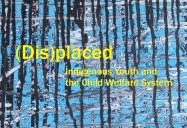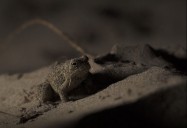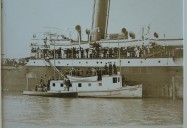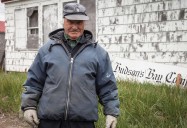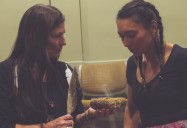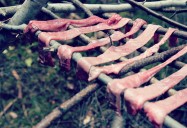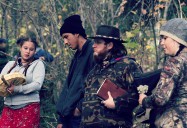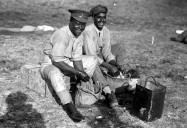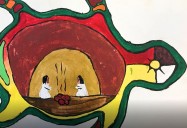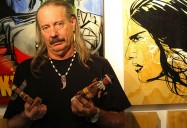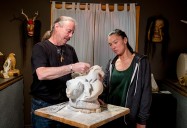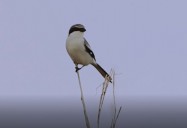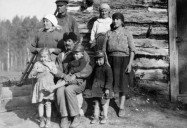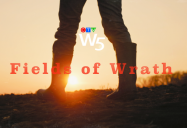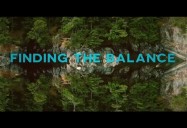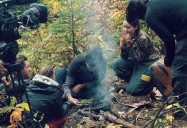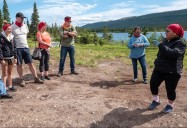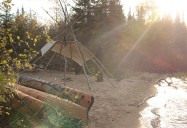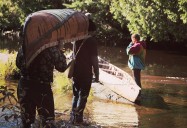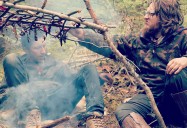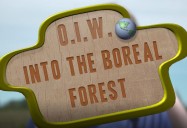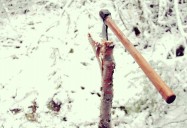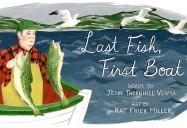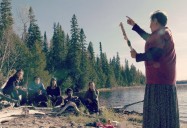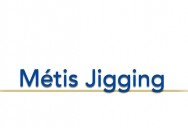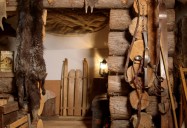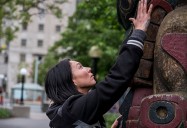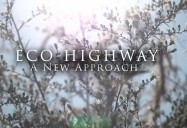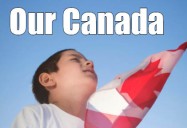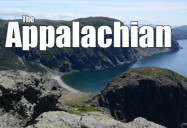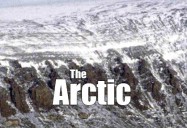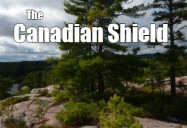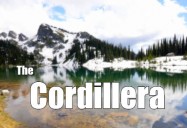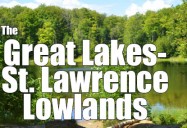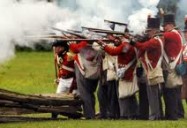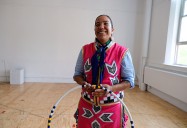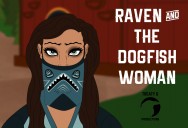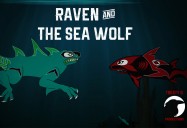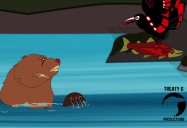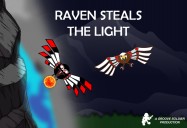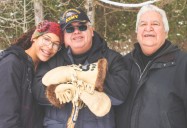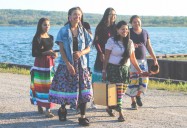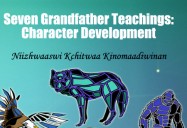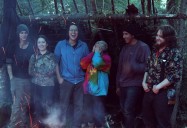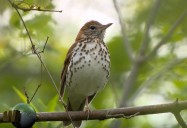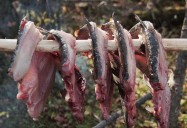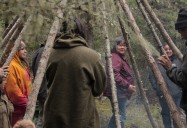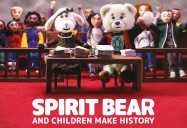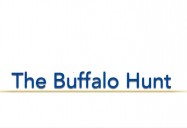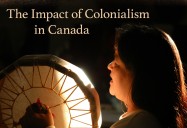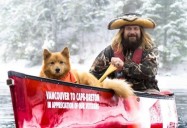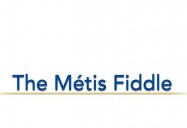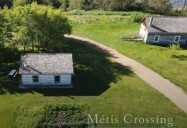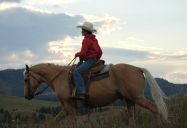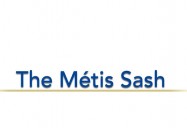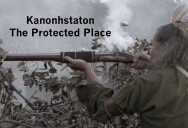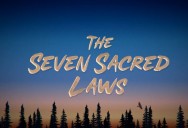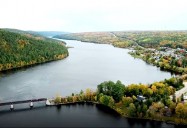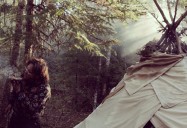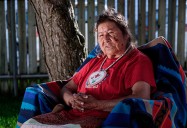
- TDSB: Art
- TDSB: Black History
- TDSB: Canadian & World Studies
- TDSB: Canadian Social Studies & First Nations
- TDSB: Career Studies & Character Ed
- TDSB: Equity & Diversity Studies
- TDSB: Financial Literacy
- TDSB: Food, Fashion & Clothing
- TDSB: Health & Phys Ed
- TDSB: Health/Safety/Abuse
- TDSB: Language
- TDSB: My Job Rocks Series - Career Education
- TDSB: PBS Playlist
- TDSB: Science
- TDSB: Social Sciences & Humanities
- TDSB: Social Studies
TDSB: Canadian Social Studies & First Nations
More Than Just the Fur Trade
Width Height
Subject(s): Canadian History, Canadian Social Studies, Canadian World Studies, First Nations Studies, History, Indigenous Issues, Indigenous Peoples, Social Studies
Grade Level: 3 - 5, 6 - 8
More Than Just the Fur Trade:
A 20 minute video chronicling the role the fur trade played in the history of Canada.
The confluence of the Ottawa and Mattawa Rivers was an important strategic area for those who travelled this historic waterway. It was the main route to the western part of Canada for thousands of years. This passage was instrumental in the development of early Canada and the fur trade. It is where explorers like Samuel de Champlain and Étienne Brûlé rested before pushing onwards to the interior of Canada. In this area known as the “Meeting of the Waters,” First Nations people and French fur traders carved out a life. With the arrival of the explorers came the trappers. Beaver pelts were highly sought after. They were easily tradeable for goods needed to live in this area.
Students will learn about:
- the importance of indigenous culture, language and spiritual beliefs
- the interaction and first contact between First Nations and Europeans
- the reasons that fuelled the fur trade in North America
- the role of the Metis in the fur trade.
- the life and the role of a voyageur.
- the role of French explorers, Radisson and Groseilliers.
- the role of the Northwest Company and the Hudson Bay Company and how their establishment changed the fur trade.
- the importance and role of the birch back canoe (Montreal canoe/canoe du nord), one of Canada’s iconic symbols.
- the importance of regulating the beaver population to maintain a healthy ecosystem.
In More Than Just the Fur Trade, students learn not only about the history of the fur trade in Canada, but also about the importance of language, culture, drumming, elders and regalia in the lives of indigenous peoples in Canada. Interviews with Mike Gauthier, member of Mattawa North Bay Algonquin's; historian Mike Whelan; and Trapper and Canoe Builder Roger Labelle provide interesting insight into indigenous lives drawing the connections between contemporary and traditional culture.
Filmmaker Bio:
An award-winning Métis filmmaker, Matt LeMay is an innovator in the field of educational documentary film. He has channelled his passion for addressing social issues that impact First Nations and Métis communities into documentaries that showcase the power of Indigenous storytelling and the importance of protecting the natural environment.
|
Running Time: 19:37 Country of Origin: Canada Captions: |
Producer: LeMay Media Copyright Date: 2017 Language: English |
Video Chapters
-
More Than Just the Fur Trade 19:37
A 20 minute video chronicling the role the fur trade played in...
TRANSCRIPT
Close- [MUSIC PLAYING]
- Today, I'm in Mattawa, Ontario, standing at the point where the Ottawa River and the Mattawa Rivers converge. This is unseeded Algonquin territory. And the Algonquin people have inhabited this region and these watersheds for thousands of years. And this point right here was instrumental in the development of early Canada and the fur trade.
- For over 10,000 years prior to first contact, indigenous communities from across Turtle Island coexisted harmoniously with nature and occupied every region of the country we now call Canada. The indigenous people were the first trappers and they respected the wildlife, never over-hunting.
- And when they did harvest an animal, they used every part for food, clothing, and shelter. These were sovereign nations with rich cultural traditions, unique languages, economies, and trade. There is new archaeological evidence that suggests indigenous communities in Canada predate the Egyptian pyramids by over 10,000 years and indigenous languages are older than both French and English.
- Today when speaking or presenting in public, it's important to acknowledge which indigenous territory you're in as an act of reconciliation and a sign of respect for the indigenous communities and people that came before us. The Algonquin people are the past, present, and future keepers of this great territory.
- This territory was also the traditional homelands to the Metis nation. The Algonquin people used to call the Ottawa River the Kitchissippi, which means the Great River, and for thousands of years lived along its banks, fished in its waters, and used it as a main artery to travel across Turtle Island.
- My aboriginal name is Maqua. I'm the bear spirit. My other aboriginal name is Cos, because I'm a bear and when I dance in the powwows-- so bear runner in English. So I'd dance with the spirits of the bear. This is a drum. We sing our songs. And these songs are given to us by our elders.
- And when these songs are given to you, you learn these songs, but also it heals the people. It represents the heart of our people. So when we sing these songs in these circles, it's about sharing these songs and our teachings that we receive from our elders. So it's always important to talk about our elders.
- [DRUMMING]
- [SINGING]
- There's a lot of different type of nations, we'll say, within Canada with the First Nation communities. And everybody has their own policies when it comes to culture a little bit. What we do in the Algonquin territory may not happen the same in the Ojibwe territory, you know? It's all First Nation, but you know, we make canoes. We do our smudging. Might be a little bit different.
- The language is going to be a little bit different. So you know, there's always something when we go to another community to see something or to trade. We always learn something from our brothers and sisters within the First Nation community. Indigenous people always like to honor our elders, because without the elders, it's about learning that culture.
- But everything has a protocol to it, right? So when you're in doubt, then you go out and ask those elders. And they'll give you those teachings. Your language would be number one. Your culture is smudging and to wear your regalia. And on your regalia, some people have different colors. These are my colors. You know, you do the bead work.
- I always feel good when I'm in my regalia. I feel at home. I feel really comfortable. And I'll give you an example. We always like to have a chat. And we talk, we talk with an eagle feather, because the eagle feather is a Migisi, is the eagle. And when we smudge like that, it goes up to the Creator.
- And that eagle, the Migisi, flies over to the highest point of all to the Creator. So when we get gifted this way for an eagle feather, it's quite an honor. And they say when you use this feather in smudging, you'll be on that red road. And it'll always give you a good life because you've been given a beautiful gift for a purpose, because you've taken on those traditional teachings.
- And you want to share that as much as you can. And it's quite an honor. I received this a few years ago from another gentleman, Roy, and he's a shaman up in Chippewa First Nation. And I was very honored. He gave me this because when I was dancing, he said, I'd like to honor you today with a fan for when you come and dance. I said, I'll accept the gift. And I was very honored.
- The very first explorers to arrive in Canada relied heavily on the teachings from the indigenous people in order to adapt to the harsh Canadian environment. If the First Nations had not been willing and open to sharing their knowledge of the land with the newcomers, the early European explorers never would have survived the first winter.
- Etienne Brule in 1610 and Samuel de Champlain in 1615 were the first Europeans to travel through the Mattawa area. And for 200 years afterwards, it was the link in the most important water route leading from Montreal west to Lake Superior into what would become Canada.
- What fueled the fur trade and the subsequent exploration and development of early Canada was the beaver pelt. In the 16th and 17th centuries, the beaver populations began to diminish across Europe as a result of over trapping. Europeans then looked to the New World to replenish their dwindling supply.
- The beavers indigenous to the northern part of North America have a thicker and much more luxurious pelt, which made them very desirable on the European market.
- We think of camps in terms of history, all the early part from about 1600 to 1800 is dominated by the fur trade. It's a tough way to make a living, when you think that they used to take a rifle and stack it vertically and put a stack of pelts the size of the rifle for the cost of the rifle. That's what they were paid. So they weren't paid very well.
- So there was a lot of exploitation going on. The fur trade was the main industry of Canada until the lumbering and logging came in. And that's really what Canada was all about. Agriculture came third sort of and developed slowly off of that spin off. But that's what people pretty well did here for about 200 years was they trapped.
- All of the early trappers in the New World were First Nations. They would trade their pelts to European settlers for guns, steel, and other European goods. As the demand for beaver pelts escalated, the fur trade became more organized and the hunt for pelts was driven inland and westward over great distances.
- When we think of the fur trade in modern times, we think of all kinds of different fur pelts. And we think of moose and deer more than anything else now. But the early thing was beavers. That was the main thing. Well, the environment itself was really harsh. Winter was a-- we look on winter as just another season. But you could die in the wintertime here very easily.
- And so winter, the weather was harsh. Climate was harsh. And the fur trade was-- they didn't actually trap. They mostly gathered from other trappers and brought the stuff down. So they were really-- the voyageurs-- were really in the transportation business actually. That's what they were doing.
- The voyageurs were regarded as legendary, especially in French Canada. They were heroes that were celebrated in folklore and music, and they were regarded as celebrities in their day. The first voyageurs were French Canadians. They traveled across the rivers and watersheds in large birch bark canoes, gathering and transporting furs in the country we now call Canada.
- Despite the fame surrounding the voyageur, their life was one of hardship and sacrifice, and not nearly as glorious as the folk tales make them out to be. Voyageurs had to be able to carry two 41 kilogram bundles of fur over portage. Some voyageurs carried up to four or five, and there is a report of a voyageur carrying seven for half a mile.
- Hernias, as a result of these heavy loads, were common and a frequent cause of death. Many voyageurs are buried along their historic trade routes. Voyageur is a French word meaning traveler. And what set them apart from others working during that time period, such as the coureur des bois, was they were part of a licensed, organized effort.
- The following passage was once told by an unnamed, retired voyageur.
- I could carry, paddle, walk, and sing with any man I ever saw. I've been 24 years a canoe man and 41 years in service. Were I young again, I would spend my life the same way over. There is no life so happy as a voyageur's life.
- As more settlers began to arrive and enter the fur trade, an entirely new race of people emerged with their own culture, communities, and language. They would be known as the Metis. To do business in the new world, you needed to speak at least one, or sometimes more, indigenous languages, and as a result, many of the Metis worked as voyageurs in this expanding industry.
- Because birch bark canoe was invented by the native-- any canoe was invented by the native. When they first came with their big boat, they could reach as far as Montreal. But then, the immersion of people said they didn't know where to go anymore. Hey, we're stuck here. The [INAUDIBLE] people came with their canoes. Says, hey, we'll take you up there. We have the tools. And they took them right up to the north and to the west and all over the place with the canoe.
- The canoe is probably one of Canada's most iconic symbols. And the birch bark canoe was the principal means of water transportation for indigenous people in Canada-- and later, the voyageurs, who used it extensively in the fur trade throughout Canada. The type of birch bark canoes used by the indigenous people and the voyageurs differed according to which route it was intended to take and how much cargo it was intended to carry.
- The famous Montreal canoes on which the fur trade depended were up to 12 meters long and carried a crew of 6 to 12 and a load of 2,300 kilograms from Montreal to Lake Superior. Past Lake Superior, the smaller canoe du nord carried a crew of five or six over the smaller lakes, rivers and streams of the northwest.
- The canoe remain the most important means of traveling Canada, unmatched by European technology, until the development of the early railways. In the 1660's, two Frenchmen, Radisson and Groseillier, explored all the way to Hudson Bay and learned that the area was rich with furs.
- They managed to raise money to bring a shipment of furs back to England and convince merchants to invest in the fur trade. As a result, a group of wealthy merchants formed the Hudson's Bay Company in 1670. And the King of England granted the company a fur trade monopoly for all the lands drained by the rivers flowing into Hudson Bay, even though the land did not belong to him or his country.
- In 1673, the first Hudson Bay trading post opened in Moose Factory on the southern coast of James Bay. Many Hudson Bay trading posts would follow, including one on the banks of the Kitchissippi River in Mattawa, Ontario. The fur trade changed the economy of First Nations, because as well as hunting and trapping for substance, First Nations people were now trapping to acquire trade goods.
- For years, the English and French fought over possession of key areas. In 1713, a treaty between Britain and France gave the Hudson Bay Company sole trading rights through the Hudson Bay and Rupert's Land. The French retained exclusive trading rights on the St. Lawrence and in Mississippi.
- But these rights were impossible to enforce. Many independent Canadian traders ignored the Hudson Bay Company efforts to prevent others from trading in their territory. In 1779, Scots and French Canadian fur traders formed the Northwest Trading Company in Montreal. The Northwest Company did not recognize the monopoly claimed by the Hudson Bay Company in Rupert's Land.
- And the Hudson Bay Company had no way to enforce it. The Northwest Company traveled to the First Nations to trade with them, whereas the Hudson Bay Company insisted the First Nations go to their posts on Hudson Bay. As a result, the Northwest Company got far more furs than the Hudson Bay Company.
- By 1795, the Hudson Bay Company's share of the fur harvest was down to 1/5 of that of the Northwest Company. The two companies remained fierce rivals until 1821, when the Northwest Company of Montreal and the Hudson Bay Company were forcibly merged by intervention of the British government to put an end to an often violent competition.
- Today, the fur trade in Canada is still alive. And regulating the population of the beaver is critical for a healthy ecosystem.
- It's a beautiful life and I've been to it for, like I say, six to five years on the traveling. I'm harvesting the same amount of beaver as I did years ago, trying to control the beaver. We have a quota on Beaver. We have a quota on Martin, on Fisher, and on Lynx. But the only one is the beaver that we got to catch at least 75% of our quota to make sure that the habitat of beaver is well-managed.
- The reason we got to harvest at least 75% is to keep the old year animal around. If we harvest a little too much over our quota or less than 75%, then the beaver will start to interbreed and they'll start to have a sick population and we will lose them. So we'll lose our wetland, too. Beaver are responsible for our wetland around here.
- How has the environment changed during your lifetime?
- A lot. A lot. I remember when I first started to trap there, most the tree, like the big birch, were all healthy. And then things that happened along the way were created by man. When the big chimney was built in Salisbury, they started to move some tree around Salisbury. But they started to kill ours. The birch were starting to die.
- Some years that you see some insects destroying the forests. So they went and sprayed. And then they killed the habitat of lots of other little animals. When they spray, they want to save the pine trees. They spray after they cut. They spray the branches that are growing. But those branches that are growing, they are food for the deer and the moose.
- The moose don't stay there any more-- not for a while, anyway, because they can't eat that. So it changed a lot, but like I say, all the changes were made mostly by man. Lately, it is very a big difference in the winter that we're having. Last year in March, I couldn't trap at all because there was no ice.
- We had snow only between Christmas and New Year, which is very unusual for this part of the country. The environment has changed a lot. We'll have to adjust to the climate change and make the best out of it. But yeah, I believe it is true. There is a change.
- Perhaps at this pivotal point of our country's history, it's time to embrace the wisdom of our indigenous elders by developing a new respect for our environment that supersedes economic interests-- that will create a climate of equality and prosperity from coast to coast to coast for the next and future generations of Canadians.
- [MUSIC PLAYING]
TRANSCRIPTS:
Interactive Transcript
Transcript (PDF)
